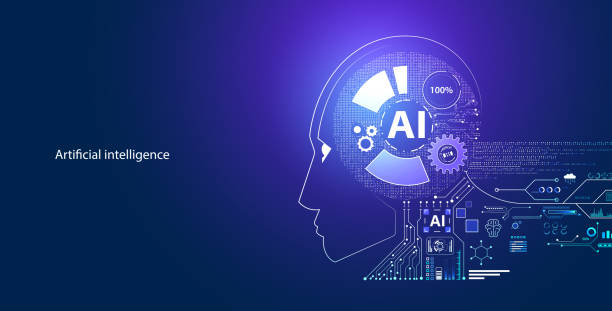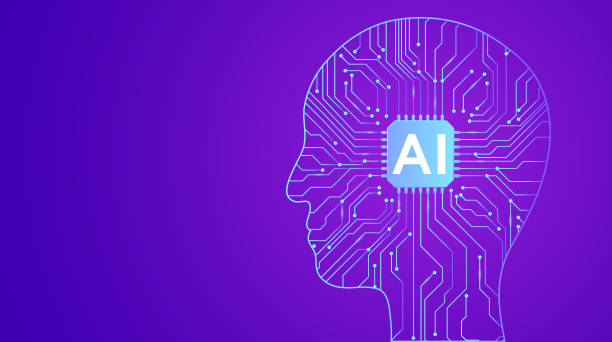What is an AI Assistant and How Does It Transform Our Lives?

In today’s fast-paced world, the concept of an #AI_assistant is no longer just a science fiction idea, but has become an integral part of our daily lives.
These intelligent systems, built upon advanced #Artificial_Intelligence and #Machine_Learning technologies, are capable of performing various tasks with high speed and accuracy.
An AI assistant, sometimes also known as an intelligent agent or virtual assistant, is essentially a software program that performs tasks by understanding and processing user commands (usually received via voice or text input).
These tasks can include answering questions, setting reminders, playing music, managing emails, or even controlling smart home devices.
The main goal of designing an AI assistant is to simplify human interaction with technology and increase productivity.
Over time, these assistants have evolved from simple command-following tools into intelligent companions capable of learning from user behavior and preferences, providing more personalized services.
This transformation has completely revolutionized our understanding of interacting with machines and further blurred the boundaries between humans and technology.
They not only help us save time but also provide quick access to information and automate repetitive tasks, allowing us to focus on more important and creative work.
These powerful tools are currently integrated into smartphones, smart speakers, cars, and even home appliances, promising a future where technology will be seamlessly interwoven with our lives.
Does losing customers who visit your site to make a purchase bother you?
Rasawb is your specialized solution for having a successful online store.
✅ Significantly increase your online sales
✅ Build trust and professional branding with customers⚡ Get free consultation from Rasawb experts!
The Evolution of Smart Assistants from Siri to Today’s Assistants

The journey of smart assistants, which we know today as AI assistants, has been a long and winding road.
Although the concept of artificial intelligence has a long history, the practical implementation of voice assistants dates back to the 2000s.
The initiator of this transformation can be considered Apple’s introduction of #Siri in 2011, which marked a turning point in technology history.
Before Siri, there were attempts to create speech recognition systems, but Siri was the first widespread assistant that could understand and respond to natural language and operate seamlessly with a mobile operating system.
Following Siri’s success, other tech companies quickly entered this arena.
Microsoft with #Cortana, Amazon with #Alexa, and Google with #Google_Assistant each made significant strides in developing AI assistants.
This competition led to tremendous advancements in natural language processing (NLP), deep learning, and conversational AI.
From initial capabilities limited to responding to simple commands, these assistants have evolved into systems capable of managing more complex conversations, gathering information from various sources, and even performing creative tasks.
The continuous development and improvement of these assistants are based on the collection and analysis of extensive data from user interactions, which allows them to constantly increase their accuracy and efficiency.
Today, these AI assistants have not only become a tool to facilitate personal life but have also found numerous applications in professional environments, from automating tasks in offices to providing customer services in companies.
These advancements indicate a future where intelligent assistants will play a more central role in our lives and work.
Types of AI Assistants and Their Specialized Applications
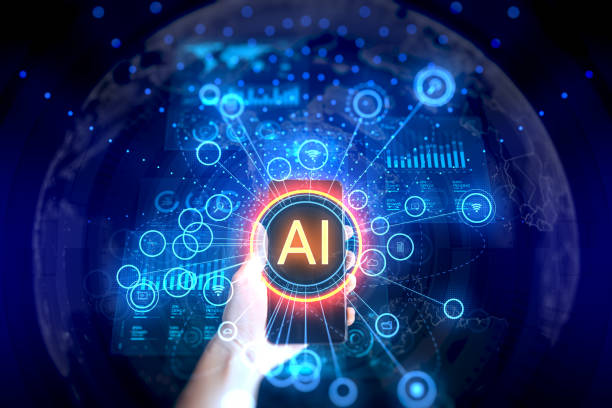
AI assistants have emerged in various forms and applications, each designed to meet specific needs.
Understanding these classifications helps to grasp the deeper potential of this technology.
Generally, smart assistants can be categorized based on their type of interaction and application area.
Some of them operate based on voice, such as Siri, Alexa, and Google Assistant, which are designed for controlling devices, playing content, and answering general questions.
Another category is text-based assistants, often used as chatbots on websites and messaging applications to provide customer support, answer frequently asked questions, or guide users through specific processes.
Beyond these general classifications, smart assistants have moved towards specialization.
For instance, in the field of #health and #medicine, AI assistants can help patients track medications, provide health information, and even assist in preliminary disease diagnosis.
In #education, virtual assistants can act as private tutors, answer students’ questions, and provide personalized learning resources.
In #industry, they play a role in optimizing production processes, supply chain management, and even predictive maintenance.
The #customer_service sector is also one of the biggest beneficiaries of this technology, where chatbots and voice assistants can answer questions 24/7 and resolve many issues without human intervention, thereby increasing customer satisfaction and reducing costs.
The emergence of AI assistants capable of processing information in highly specific and specialized domains promises a future where every individual or business can have a customized assistant for their unique needs.
This diversity in applications demonstrates the flexibility and power of this technology in responding to a wide range of challenges in the modern world.
| Assistant Type | Examples | Main Applications |
|---|---|---|
| General Voice Assistant | Siri, Alexa, Google Assistant | Control smart devices, play music, set reminders, search for information, send messages |
| Chatbot and Text-based Assistant | ChatGPT, Bard, Customer support chatbots | Answering FAQs, customer support, content generation, text summarization |
| Specialized Assistant (Professional) | Medical, financial, legal assistants | Complex data analysis, providing expert consultation, automating professional tasks, assisting with research |
| Image/Vision-based Assistant | Google Lens, Face recognition assistants | Object identification, text translation in images, environment-based navigation |
Significant Advantages of Using AI Assistants

The use of AI assistants in daily life and work environments brings numerous benefits, leading to a significant increase in #productivity and #ease_of_use.
One of the most prominent advantages of these assistants is their ability to automate repetitive and time-consuming tasks.
For example, instead of manually searching for weather information, traffic, or news, you can simply ask your assistant and receive the answer within seconds.
This capability directly leads to #time_saving, which is one of our most valuable assets.
Additionally, AI assistants help users lead a more organized life by scheduling appointments, setting reminders, and managing schedules.
Another advantage is easy and quick access to information.
With the help of these assistants, you can quickly access any type of information you need, from historical facts to cooking instructions.
This feature is highly valuable for students, researchers, and anyone seeking continuous learning.
Furthermore, smart assistants, by providing personalized experiences, can play your favorite content (such as music or podcasts) or offer suggestions relevant to your interests, based on your taste and habits.
For individuals with physical disabilities, AI assistants are an empowering tool that provides the ability to control devices and access information without physical interaction, greatly contributing to #increased_accessibility.
Finally, with the help of these assistants, businesses can improve their customer services, reduce response times, and significantly lower operational costs, all of which contribute to sustainable growth and development.
Did you know that 94% of a company’s first impression relates to its website design?
Rasawb, by providing professional corporate website design services, helps you create the best first impression.
✅ Create a professional and trustworthy image for your brand
✅ Easier attraction of potential customers and improved online presence
⚡ Get free corporate website design consultation
Current Challenges and Limitations of AI Assistants

Despite numerous benefits, AI assistants still face challenges and limitations that require technological and ethical attention and solutions.
One of the most significant concerns is the issue of #privacy and #data_security.
AI assistants need to collect and process large volumes of personal data to provide personalized services, which can lead to security risks and privacy breaches.
Concerns exist regarding how this data is stored, used, and shared, and users have the right to know how their information is protected.
Another limitation relates to accuracy and natural language understanding.
Although smart assistants have made significant progress in this area, they still struggle with understanding ambiguous sentences, sarcasm, humor, or complex human emotions.
This inability to fully grasp conversational context can lead to incorrect or inefficient responses.
Furthermore, the issue of data bias is also a serious challenge; if the training data for an AI assistant contains existing societal biases, the assistant may reproduce these biases, leading to discrimination or unfair decisions.
Moreover, the discussion of #accountability in case of an error by a smart assistant, especially in sensitive applications like medicine or autonomous driving, has not yet been fully resolved.
Concerns about #job_displacement due to automation by AI assistants are also among the issues that have sparked widespread debate.
These challenges require multidisciplinary approaches, including technological development, regulation formulation, and public awareness, to ensure the responsible and ethical development of this technology.
How Do AI Assistants Learn and Make Decisions?
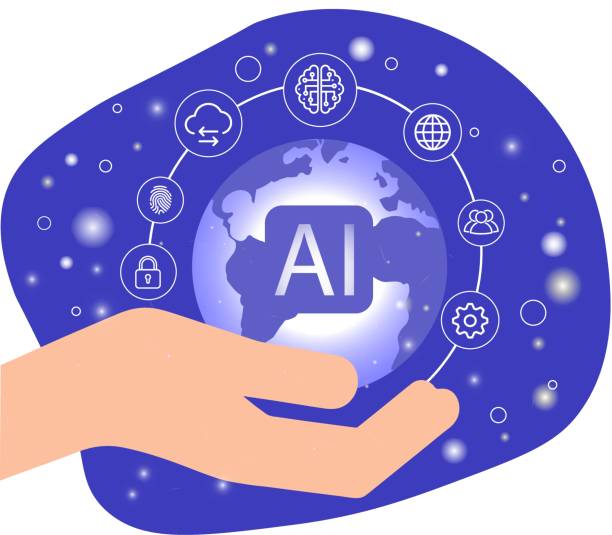
Many might wonder how an AI assistant is able to answer complex questions or accurately perform assigned tasks.
The answer lies at the core of AI technologies: Machine Learning and Natural Language Processing (NLP).
These assistants are built upon complex mathematical models and algorithms that allow them to learn from data and improve their performance over time.
The learning process usually begins with collecting vast amounts of data.
This data can include human conversations, texts, images, and sounds.
Then, using #machine_learning techniques, such as deep learning and artificial neural networks, hidden patterns and relationships within this data are identified.
For example, in natural language processing, an AI assistant learns how words, phrases, and grammatical structures relate to each other and what their meanings are in different contexts by analyzing millions of sentences.
This allows them to understand human language, not just recognize keywords.
When a user gives a command, their voice is converted into text (speech recognition), then this text is analyzed by the NLP engine to understand the user’s intent.
After understanding the intent, the assistant retrieves relevant information from its knowledge base or by connecting to the internet.
Finally, using language generation models, an appropriate and natural response is produced and presented to the user (text-to-speech conversion).
Additionally, with each interaction, the AI assistant learns from user feedback and its own performance results.
This reinforcement learning helps them become smarter over time, provide more accurate responses, and even anticipate what the user might want to do next.
This continuous cycle of learning and improvement is the foundation of the dynamic and adaptable performance of these new technologies.
The Future of AI Assistants and Emerging Trends

The future of AI assistants is very exciting and full of unparalleled potential.
Emerging trends in this field indicate that smart assistants are moving towards more advanced capabilities and deeper integration into various aspects of our lives.
One of the most important of these trends is the development of Multimodal AI.
Currently, many AI assistants primarily rely on voice or text input, but future assistants will be able to process information through multiple sensory channels such as vision (images and videos), touch, and even smell.
This capability will allow them to better understand the environment and interact with humans in more natural ways.
Another trend is the move towards proactive and predictive assistants.
Instead of merely responding to commands, future assistants will be able to anticipate your needs and perform tasks or provide relevant information before you even ask.
For example, a smart assistant could remind you of the appropriate time to leave home by observing your calendar and traffic conditions.
Deeper integration with the Internet of Things (IoT) will also enable AI assistants to have greater control over their surroundings, from adjusting home temperature to managing smart appliances.
Furthermore, we will see increased use of assistants in Virtual Reality (VR) and Augmented Reality (AR) environments, providing unprecedented interactive experiences.
The capability for #emotional_intelligence and understanding human emotional states is also among the new frontiers that AI assistants are exploring.
These advancements promise assistants that will be not only smart tools but truly helpful companions for humans.
| Trend | Description | Impact on User |
|---|---|---|
| Multimodal AI | Simultaneous processing of information from voice, text, image inputs, and other sensors | More comprehensive understanding of the environment and user, more natural and human-like interaction |
| Predictive and Proactive Assistants | Anticipating user needs based on behavioral patterns and available information, and providing assistance before requested | Increased productivity and convenience, reduced need for explicit commands |
| Deep Integration with IoT | Seamless and intelligent control of connected devices in home, car, and work environment | Creation of truly smart and automated environments, seamless user experience |
| Emotional Intelligence and Empathy | Ability to detect and understand user emotional states and respond accordingly | More human-like interactions, emotional support in specific situations, improved mental well-being |
| Decentralization and Edge AI | Processing data locally on the device instead of cloud servers | Increased privacy and security, reduced latency, faster performance |
The Impact of AI Assistants on Daily Life and Various Industries
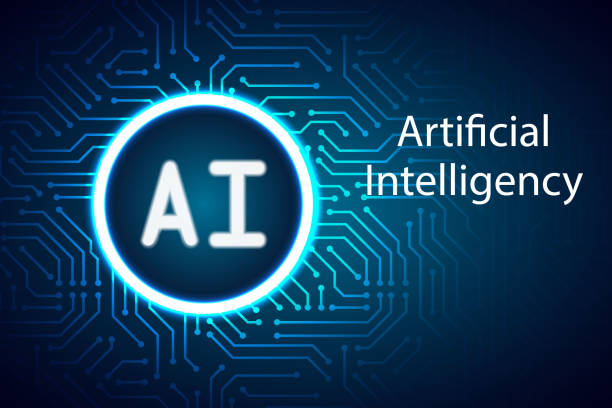
AI assistants are rapidly permeating our daily lives and revolutionizing various industries.
On an individual level, these assistants act as digital personal managers, not only helping with simple tasks but also improving lifestyle.
From setting morning alarms and playing news to suggesting recipes based on ingredients available in the refrigerator, these assistants make life simpler and more efficient.
In smart homes, AI assistants have become the control center, allowing users to control lights, HVAC systems, doors, and other smart appliances with their voice.
In various industries, the impact of smart assistants is much broader.
In the #customer_service sector, chatbots and voice assistants help companies answer customer questions 24/7, resolve common issues, and even guide through purchase processes.
This not only increases customer satisfaction but also significantly reduces operational costs.
In the automotive industry, AI assistants are integrated into in-car infotainment systems, helping drivers navigate, control music, and make calls without distraction.
In #healthcare, virtual assistants assist doctors in managing schedules, quickly accessing medical information, and even helping patients track treatment progress and medications.
In #education, AI assistants can serve as personalized learning tools, help students with their assignments, and provide educational content tailored to each individual’s needs.
Even in #banking and #finance, smart assistants help customers perform transactions, answer financial questions, and provide investment recommendations.
These developments show that AI assistants are not just convenience tools but are catalysts for change and innovation in the global economy.
Does your company’s website perform as it should for your brand? In today’s competitive world, your website is your most important online tool. Rasawb, a specialist in professional corporate website design, helps you to:
✅ Attract customer credibility and trust
✅ Convert website visitors into customers
⚡ Get free consultation!
Ethical and Social Considerations in the Development and Application of AI Assistants

With the increasing proliferation of AI assistants and their penetration into various aspects of life, examining the #ethical and #social_considerations related to the development and application of this technology has become of particular importance.
One of the most significant concerns is the issue of data privacy.
AI assistants require access to a vast amount of users’ personal data for optimal performance.
This access can include voice conversations, messages, behavioral patterns, and location information.
Protecting this information from unauthorized access and potential misuse is a major ethical challenge that requires strong legal and technical frameworks.
Another ethical challenge is the issue of algorithmic bias.
AI assistants learn from training data generated by humans.
If this data contains racial, gender, or social biases, the smart assistant may reproduce these biases, leading to discrimination in service provision or decision-making.
This issue can exacerbate existing inequalities in society.
The discussion of #accountability is also a complex area.
If an AI assistant makes an error, who is responsible? The developer, the user, or the system itself? This question is particularly crucial in applications where human lives are involved, such as self-driving cars or medical assistants.
Furthermore, the potential of AI assistants for #job_displacement and the need for workforce retraining is a serious social concern.
Transparency in algorithm performance, ensuring fairness and equity in AI decision-making, and designing systems that prioritize human values are among the principles that must be observed in the development and implementation of this technology to ensure that AI assistants become tools for improvement rather than harm to society.
How to Choose the Best AI Assistant for Yourself?
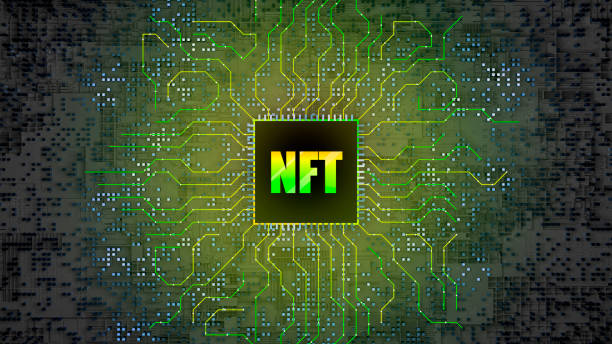
Choosing the best AI assistant for individual or business needs can be challenging, as the market is full of diverse options with varying features and capabilities.
For an informed choice, several key factors should be considered.
The first and most important step is #determining_needs and #expected_applications.
Are you looking for an assistant primarily for entertainment and smart home control? Or do you need a specialized assistant for professional or educational tasks? Answering this question will narrow down your choices.
Compatibility with your existing ecosystem (e.g., smartphone, operating system, and other smart devices) is another important factor.
If you use Apple products, Siri is naturally more compatible with them; if you have Android or Google-centric devices, Google Assistant might be a better option.
The issue of #privacy and #security is also very crucial.
Check how each AI assistant collects, stores, and uses your data, and what options it provides you for privacy control.
Carefully read companies’ privacy policies.
Also, the accuracy of the assistant’s natural language detection and understanding, as well as its #personalization_capability, are of high importance.
An efficient assistant should be able to correctly understand your commands and learn from your preferences over time.
Pay attention to #Farsi_language_support, as some assistants currently have limited or no Farsi support.
Reading reviews and comparing the capabilities and limitations of each assistant can help you in your final decision.
Finally, remember that AI assistant technology is evolving, and with new updates and advancements, your best option might change in the future.
Therefore, flexibility in choice and readiness to adapt to new technologies are also important.
Frequently Asked Questions
| Question | Answer |
|---|---|
| What is an AI assistant? | An AI assistant is a software program that, using artificial intelligence, can perform various tasks for users, such as answering questions, setting reminders, playing music, and managing calendars. |
| What are some of the most famous AI assistants? | Some of the most famous AI assistants include Apple’s Siri, Google Assistant, Amazon’s Alexa, and Microsoft’s Cortana. |
| How does an AI assistant work? | These assistants use Natural Language Processing (NLP) to understand user voice or text commands, and machine learning to improve performance and personalize responses. |
| What are the main applications of AI assistants? | Main applications include setting alarms and reminders, playing music and podcasts, answering general questions, sending messages, making calls, controlling smart home devices, and providing weather or traffic information. |
| Can AI assistants speak with different accents? | Yes, many modern AI assistants have the ability to recognize and generate speech with various accents and languages. |
| What are the differences between an AI assistant and a chatbot? | An AI assistant is generally more comprehensive and can perform various tasks beyond answering text-based questions (such as controlling devices). Chatbots are primarily designed for text-based conversations on websites or messaging applications. |
| Is it safe to use AI assistants? | Companies strive to ensure data security, but concerns exist regarding privacy and the storage of voice data. Users should review their privacy settings. |
| What will be the future of AI assistants? | In the future, AI assistants are expected to become smarter, more predictive, and more integrated with daily life and other devices, capable of performing more complex tasks. |
| How can I activate an AI assistant? | They are usually pre-installed on smartphones and smart home devices. You can activate them by saying “Hey Siri”, “Ok Google” or “Alexa” and then giving your command. |
| Can an AI assistant help me with learning? | Yes, it can assist with learning by providing information, defining words, translating texts, and even solving math problems. It can also play educational podcasts for you. |
And other advertising services from Rasaweb Advertising Agency:
Smart Reportage: Professional optimization for campaign management using attractive UI design.
Smart Marketplace: Professional optimization for customer behavior analysis using key page optimization.
Smart UI/UX: Designed for businesses seeking to increase click-through rates through user experience customization.
Smart Customer Journey Map: Professional optimization for increasing website visits using marketing automation.
Smart Sales Automation: A new service for increasing click-through rates through marketing automation.
And over a hundred other services in the field of internet advertising, advertising consultation, and organizational solutions.
Internet Advertising | Advertising Strategy | Advertorial
Sources
Smart Assistants
AI and the Future
New Technologies
Digital Transformation
? At Rasawb Afarin, your dream for a powerful presence in the digital world becomes a reality. By providing comprehensive digital marketing services, including fast website design and professional optimization, we elevate your business to its peak.
📍 Tehran, Mirdamad Street, next to Bank Markazi, Southern Kazeroon Alley, Ramin Alley, No. 6

